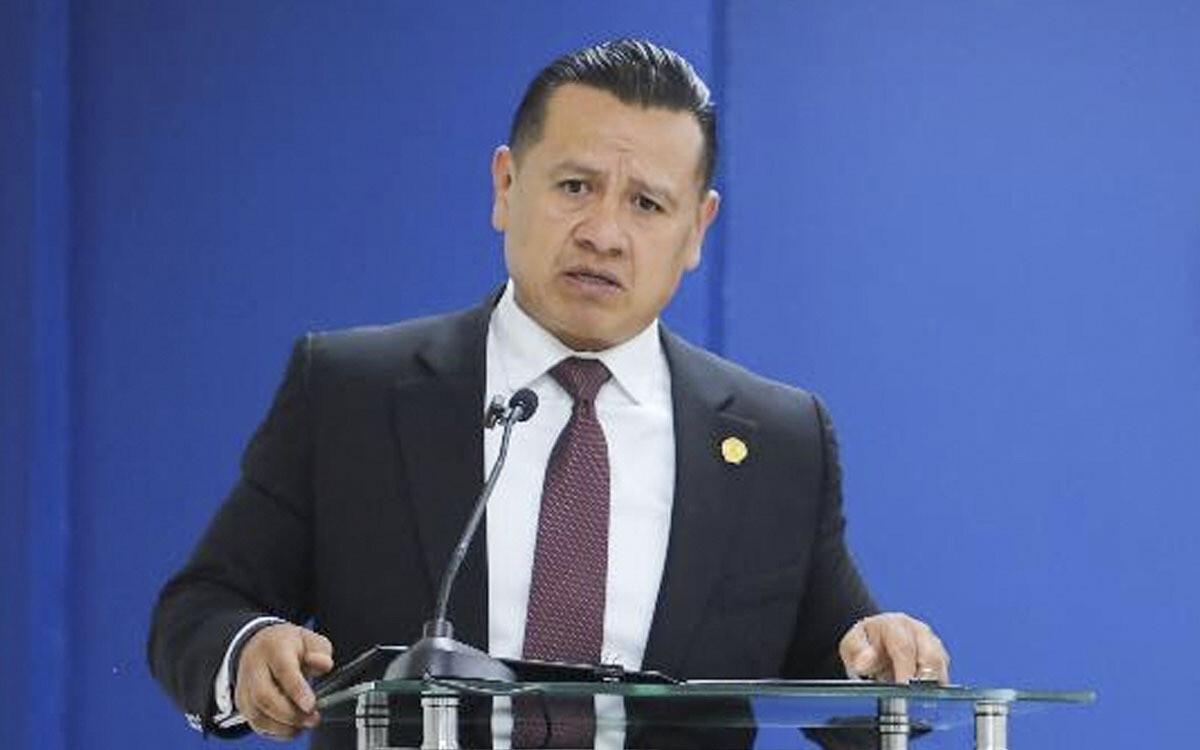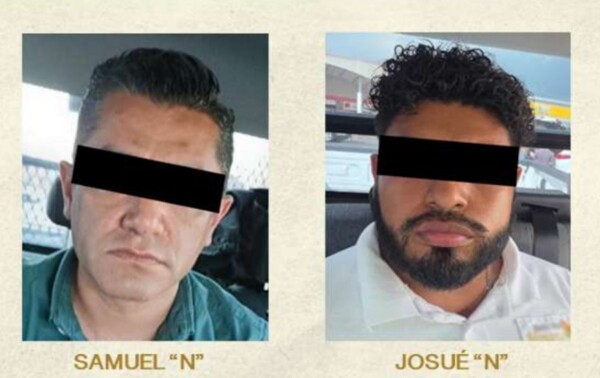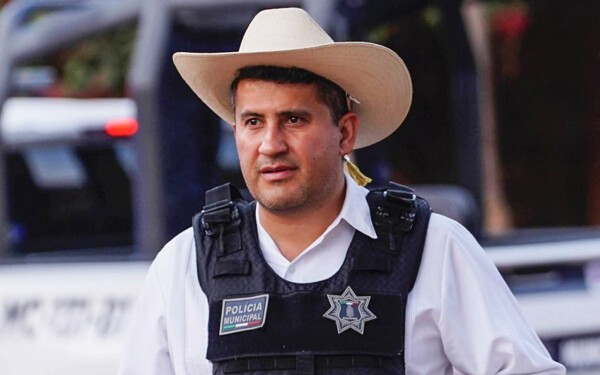
Journalist María Idalia Gómez stated on 'Aristegui en Vivo' that the prosecutor of Michoacán, Carlos Torres Piña, is being investigated by the United States for alleged ties to criminal groups.
During her appearance on the analysis panel last Friday, Gómez claimed that U.S. authorities were 'surprised' by how the progress in the investigation into the murder of Uruapan's mayor, Carlos Manzo, was leaked. This was due to the publication of photos and data of the alleged material perpetrator, a minor who was killed during the operation.
'It seems as if someone wanted to harm this investigation, because by providing information and publishing photos and data, it is damaging the due process and, to its ultimate consequences, the people involved,' she said.
Last November 6, the organization Tejiendo Redes Infancia denounced that the Michoacán Prosecutor's Office violated the law by publicizing the identity and face of a 17-year-old teenager. 'We express our deep concern over the deplorable illegal act committed by the Michoacán Prosecutor's Office [...] in exposing the human remains and identity of a child who was both a victim and a perpetrator in the murder of Mayor Carlos Manzo; this is a painful expression of recruited childhood,' they stated in a press release.
The organization affirmed that the state authority failed to comply with the General Law on the Rights of Girls, Boys, and Adolescents (LGDNNA), which establishes the obligation to protect the identity of minors linked to a crime, whether as victims or alleged perpetrators, to prevent their public identification.
Security scheme ordered by a judge María Idalia Gómez explained that Carlos Manzo had 14 security elements from the National Guard since his electoral campaign, but clarified that they were not assigned by the will of the federal government, but rather due to a court order. 'He had to file a request for a precautionary measure before a judge for a risk assessment to be conducted and for the necessary number of elements to be granted so that, during his candidacy, he could travel to different points in the municipality to campaign,' she noted.
According to the journalist, it was from that judicial resolution that the measure was established.
They will continue with the tomato and probably with other products that will be added to the list due to the participation and collaboration of criminal groups. María Idalia Gómez added that the recent visit of U.S. Agriculture Secretary Brooke Rollins to Mexico aimed to analyze 'how the Mexican agribusiness is financing criminal groups,' and not just to address health issues such as the tomato pinworm.
According to her sources, both Mexican and U.S. authorities are working under the hypothesis of a 'conjunction between politics and criminal groups' in Michoacán, through extortions and kidnappings, and also that they 'intend for their farms, which produce other products, to pass as legal importers to the United States, something that cannot be easily certified and that could, as I said in the previous program, cause the revocation of several producers' authorizations, as it could hinder the legal and commercial transit of avocado, lemon, and as has already happened with the tomato.'
See the full panel: 'That was the level of insecurity he had since then, and it remained because they were not taken away from him; and not because the judge's order prevailed, but because the insecurity in Manzo's case prevailed,' she added.
She also criticized the lack of vision by the authorities during the then-candidate's campaign, pointing to a lack of 'awareness, authority, and vision about what was happening in terms of insecurity, not only in Michoacán, but in many parts of the country.'
Negotiation with MC for a candidacy for the Government of Michoacán Gómez pointed out that Manzo was positioned as a candidate for the governorship of Michoacán, given the results of several polls that gave him 'a very high advantage over other candidacies that could have been presented for the government of Michoacán,' she said, 'ranging from 15, 18, 20, to 22 points over the most significant competitor.'
According to Gómez, Manzo's plan and his movement—known as 'del sombrero' (the hat)—was to launch his candidacy in March 2026, in alliance with Movimiento Ciudadano (MC). 'He was about to launch his candidacy for the governorship of Michoacán in the coming March, and this candidacy, through his independent association, was going to be hand-in-hand with Movimiento Ciudadano,' she explained. 'That's why the question of why Luis Donaldo Colosio was traveling, walking around. He had already spoken with the president of the party, and everything was being prepared for this candidacy to exist in March,' she pointed out.
She added: 'They not only killed, as has been said, a municipal president, but a prospective candidate for the governorship of Michoacán who was already building his candidacy in a serious and formal manner.'
In this sense, she raised the possibility that those responsible for the murder of Carlos Manzo had known his movements and political plans in advance due to the vulnerability of communications in Michoacán. 'The hypothesis that they knew all the plans, not only the movements that allowed them to carry out the crime, but also the possibilities of him becoming a candidate, is very strong,' she affirmed.
She noted that the U.S. government has warned Mexico about this problem and recommended the use of certified radios to prevent criminal groups from interfering in official and private communications.
Image: IA/AN (MDS) Gómez also recounted the case of the kidnapping and murder of a Bancomer director in Michoacán, who managed the accounts of the most important agricultural businessmen in the state. 'He was kidnapped, his family paid the ransom, but he appeared dead and tortured the day before the mayor of Uruapan's death. This investigation was also left to the government of Michoacán, which has not said anything, nor has the federal government made any statement,' she said.
'Here, what has happened is that businessmen are afraid because it has been said that he was actually kidnapped to find out how many accounts they had, how much money, to deepen and intensify the extortions,' added the journalist.
The United States, she affirmed, has estimated that extortions alone from avocado growers reach 800 million dollars a year in 46 Michoacán municipalities, something she was able to verify through official documents.
She stated that the U.S. considers that criminal groups are also financed with extortions to the agricultural sector, so they will maintain restrictions on products such as meat and tomatoes. 'That is why they will continue with the meat blockade, because they also see the hand of criminal groups, of criminal companies linked to businessmen,' Gómez concluded.














